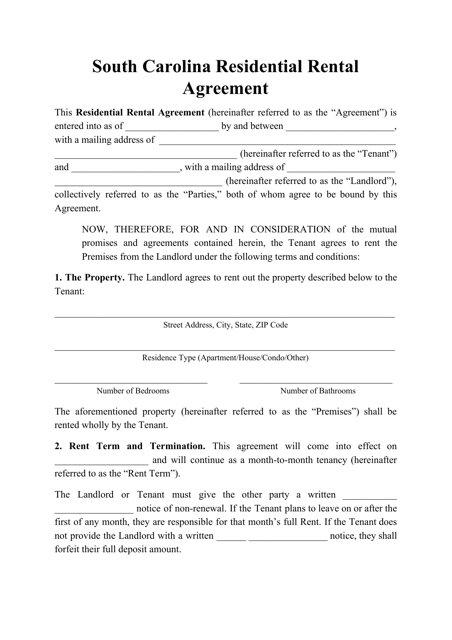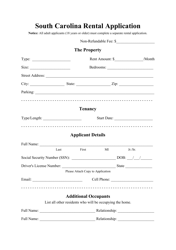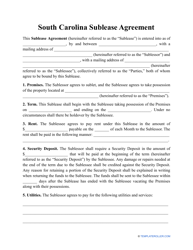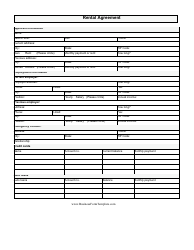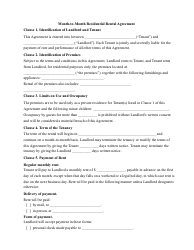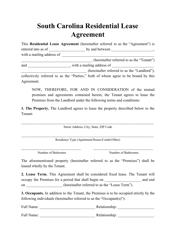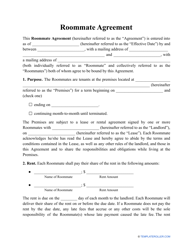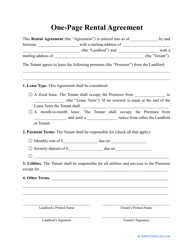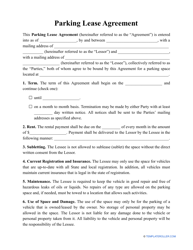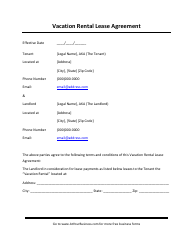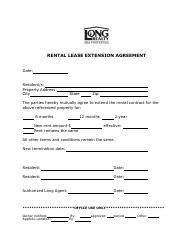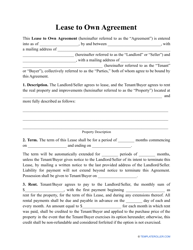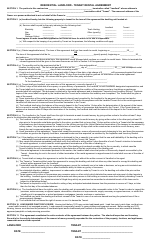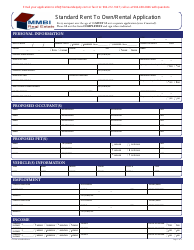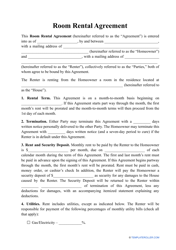Residential Rental Agreement Template - South Carolina
A Residential Rental Agreement Template in South Carolina is used to legally outline the terms and conditions of renting a residential property in the state of South Carolina. It provides a written agreement between the landlord and the tenant, specifying their rights, responsibilities, and obligations during the rental period.
The residential rental agreement template in South Carolina is typically filed by the landlord or property owner.
FAQ
Q: What is a residential rental agreement?
A: A residential rental agreement is a legally binding contract between a landlord and tenant that outlines the terms and conditions of renting a property.
Q: What is the purpose of a residential rental agreement?
A: The purpose of a residential rental agreement is to establish the expectations and responsibilities of both the landlord and tenant during the rental period.
Q: Is a residential rental agreement required in South Carolina?
A: While not required by law, it is highly recommended to have a written residential rental agreement in South Carolina to protect the rights and interests of both parties.
Q: What should be included in a residential rental agreement?
A: A residential rental agreement should include the names of the landlord and tenant, the property address, the rental term, rent amount, payment due date, security deposit details, maintenance responsibilities, and any additional terms or conditions.
Q: Can a landlord increase rent during the rental period?
A: In South Carolina, a landlord can only increase rent if it's stated in the rental agreement or if the tenant agrees to the increase.
Q: Can a tenant terminate a rental agreement early?
A: In South Carolina, a tenant can terminate a rental agreement early if there is a breach of the agreement by the landlord, but they may be responsible for paying rent until a new tenant is found.
Q: What happens if there is a dispute between the landlord and tenant?
A: If there is a dispute between the landlord and tenant, it is recommended to try to resolve it through communication. If that fails, legal action may be necessary.
Q: Can a landlord evict a tenant without a legal process?
A: No, a landlord cannot legally evict a tenant without going through the proper legal process, which includes providing written notice and obtaining a court order.
Q: Can a tenant withhold rent for repairs?
A: In South Carolina, a tenant may be able to withhold rent or make repairs themselves and deduct the cost from the rent if certain conditions are met, such as the landlord's failure to make necessary repairs.
Q: What are the consequences for breaking a residential rental agreement?
A: Consequences for breaking a residential rental agreement may include financial penalties, eviction, and damage to credit history.
